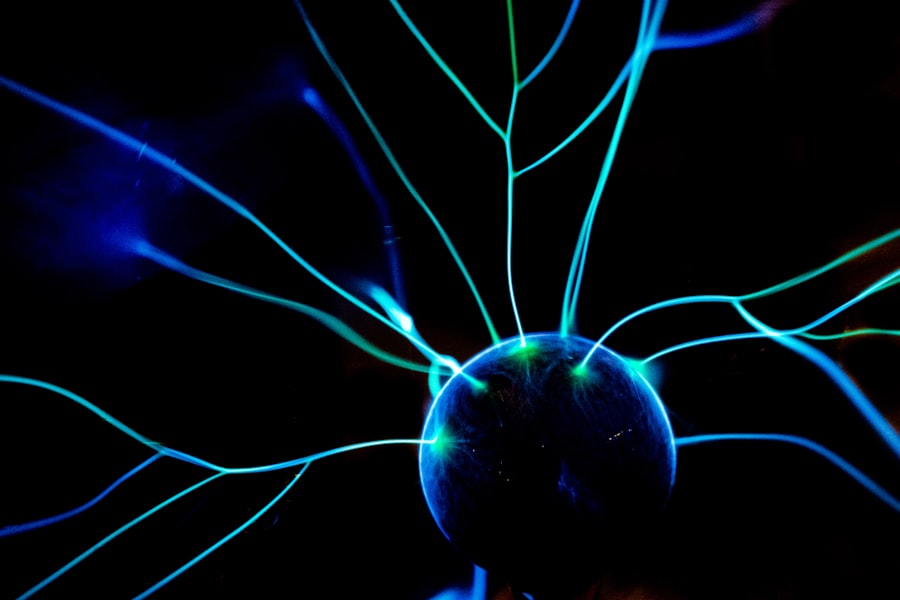Childhood neglect is a profound issue that can leave lasting scars on an individual’s life. It occurs when a caregiver fails to provide the necessary emotional, physical, or educational support that a child needs to thrive. This lack of care can manifest in various forms, including inadequate supervision, insufficient emotional support, and neglecting basic needs such as food, shelter, and medical care.
As you delve into the complexities of childhood neglect, it becomes clear that it is not merely a failure to provide; it is a deep-seated absence of nurturing that can hinder a child’s development and sense of self-worth. Recognizing the nuances of childhood neglect is crucial for understanding its implications. It is often insidious, sometimes disguised as benign neglect or overlooked due to cultural norms.
You may find that many individuals who experience neglect do not even realize they have been neglected until they encounter healthier environments or relationships. This realization can be a pivotal moment in your journey toward healing, as it allows you to confront the past and understand how it has shaped your present.
Key Takeaways
- Childhood neglect can have long-term effects on brain development and emotional well-being.
- Signs of childhood neglect can include poor impulse control, difficulty forming relationships, and low self-esteem.
- Long-term effects of childhood neglect can include mental health issues, substance abuse, and difficulty in forming healthy relationships.
- Strategies for overcoming childhood neglect can include therapy, self-care, and building healthy relationships.
- Support systems and neuroplasticity play a crucial role in healing from childhood neglect and finding hope and resilience.
The Impact of Childhood Neglect on Brain Development
The effects of childhood neglect extend far beyond emotional scars; they can significantly alter brain development. Research indicates that neglect can lead to structural changes in the brain, particularly in areas responsible for emotional regulation, impulse control, and cognitive functioning. As you explore this topic, you may discover that children who experience neglect often have lower volumes of gray matter and altered neural pathways, which can affect their ability to learn and interact socially.
Moreover, the impact of neglect on brain development can lead to difficulties in forming attachments and trusting others. You might find that these early experiences create a cycle of emotional dysregulation, where feelings of anxiety and depression become prevalent. Understanding this connection between neglect and brain development can empower you to seek help and make informed decisions about your mental health and well-being.
Recognizing the Signs of Childhood Neglect

Recognizing the signs of childhood neglect is essential for both individuals who have experienced it and those who may be in a position to help. You may notice that neglected children often exhibit a range of behavioral issues, such as withdrawal from social interactions, poor academic performance, or difficulty in forming relationships. These signs can be subtle, making it crucial for you to remain vigilant and empathetic toward those who may be suffering in silence.
In addition to behavioral indicators, physical signs of neglect can also be present. You might observe that a child appears malnourished, has poor hygiene, or frequently wears dirty or ill-fitting clothing. These outward manifestations can serve as critical clues for identifying neglect.
If you suspect that someone is experiencing neglect, it is vital to approach the situation with sensitivity and care, as your support could be instrumental in their journey toward healing.
The Long-Term Effects of Childhood Neglect
| Long-Term Effects of Childhood Neglect | Statistics |
|---|---|
| Emotional Development | Increased risk of depression, anxiety, and low self-esteem |
| Physical Health | Higher likelihood of chronic health conditions such as obesity and heart disease |
| Social Relationships | Difficulty forming and maintaining healthy relationships |
| Cognitive Functioning | Impaired cognitive development and lower academic achievement |
| Behavioral Issues | Increased risk of substance abuse, aggression, and criminal behavior |
The long-term effects of childhood neglect can be profound and far-reaching. As you reflect on this topic, consider how individuals who have experienced neglect may struggle with self-esteem issues, relationship difficulties, and mental health challenges well into adulthood. The internalized messages of unworthiness and abandonment can create barriers to personal growth and fulfillment.
Additionally, the repercussions of childhood neglect can extend into various aspects of life, including career choices and parenting styles. You may find that those who have faced neglect often replicate unhealthy patterns in their relationships or struggle to maintain stable employment. Understanding these long-term effects can help you recognize the importance of addressing past traumas and seeking support to break free from these cycles.
Strategies for Overcoming Childhood Neglect
Overcoming childhood neglect requires a multifaceted approach that encompasses emotional healing, self-awareness, and personal growth. One effective strategy is to engage in self-reflection and identify the specific ways in which neglect has impacted your life. By acknowledging these experiences, you can begin to understand your emotional triggers and develop healthier coping mechanisms.
Another vital strategy is to cultivate resilience through positive experiences and relationships.
You might also consider setting achievable goals for yourself, whether they pertain to personal development or professional aspirations.
By taking small steps toward your goals, you can build confidence and create a brighter future.
Therapy and Counseling for Childhood Neglect

Therapy and counseling play a crucial role in healing from childhood neglect. Engaging with a mental health professional can provide you with a safe space to explore your feelings and experiences without judgment. In therapy, you can work through the pain associated with neglect and develop strategies for coping with its effects on your life.
Cognitive-behavioral therapy (CBT) is one approach that may be particularly beneficial for individuals recovering from childhood neglect. This therapeutic method focuses on identifying negative thought patterns and replacing them with healthier beliefs. As you engage in this process, you may find that your self-perception begins to shift, allowing you to cultivate a more positive outlook on life.
Building Healthy Relationships After Childhood Neglect
Building healthy relationships after experiencing childhood neglect can be challenging but is essential for personal growth and healing. You may find that trust issues arise when trying to connect with others, stemming from past experiences of abandonment or betrayal. Acknowledging these feelings is the first step toward overcoming them.
To foster healthy relationships, consider practicing open communication with those around you. Sharing your feelings and experiences with trusted friends or family members can help bridge the gap between past trauma and present connections. Additionally, setting boundaries is crucial; learning to say no or express your needs can empower you to create relationships that are mutually supportive and respectful.
Self-Care and Healing from Childhood Neglect
Self-care is an integral part of healing from childhood neglect. As you embark on this journey, prioritize activities that nurture your mind, body, and spirit. Engaging in regular physical exercise, practicing mindfulness or meditation, and pursuing hobbies that bring you joy can significantly enhance your overall well-being.
Moreover, consider journaling as a form of self-expression and reflection. Writing about your thoughts and feelings can provide clarity and help you process complex emotions related to your past experiences. By incorporating self-care practices into your daily routine, you create a foundation for healing that fosters resilience and personal growth.
The Role of Support Systems in Overcoming Childhood Neglect
Support systems are vital in overcoming the effects of childhood neglect. Surrounding yourself with understanding friends, family members, or support groups can provide the encouragement needed to navigate the challenges associated with healing. You may find solace in connecting with others who have had similar experiences; sharing stories can foster a sense of community and belonging.
Additionally, consider seeking out professional support through therapists or counselors who specialize in trauma-informed care. These professionals can offer valuable insights and coping strategies tailored to your unique experiences. By actively engaging with your support system, you empower yourself to confront the past while building a brighter future.
Rewiring the Brain: Neuroplasticity and Childhood Neglect
Neuroplasticity—the brain’s ability to reorganize itself by forming new neural connections—offers hope for those recovering from childhood neglect. As you learn about this concept, you may find comfort in knowing that it is possible to reshape your brain’s responses to trauma through intentional practice and positive experiences. Engaging in activities that promote neuroplasticity can include learning new skills, practicing mindfulness techniques, or participating in creative endeavors such as art or music.
These activities stimulate brain activity and encourage the formation of new pathways that foster resilience and emotional regulation. By embracing neuroplasticity as part of your healing journey, you open yourself up to new possibilities for growth and transformation.
Finding Hope and Resilience After Childhood Neglect
Finding hope and resilience after experiencing childhood neglect is not only possible but essential for personal growth. As you reflect on your journey, consider how far you’ve come despite the challenges you’ve faced. Embracing a mindset of resilience allows you to view setbacks as opportunities for growth rather than insurmountable obstacles.
You might also find inspiration in stories of others who have overcome similar struggles. Learning about their journeys can instill a sense of hope within you, reminding you that healing is achievable. By focusing on your strengths and celebrating small victories along the way, you cultivate a sense of empowerment that propels you forward on your path toward healing and fulfillment.
In conclusion, understanding childhood neglect is crucial for recognizing its impact on individuals’ lives. By exploring its effects on brain development, acknowledging signs of neglect, and implementing strategies for healing, you can embark on a transformative journey toward resilience and hope. Remember that support systems play an essential role in this process; by surrounding yourself with understanding individuals and engaging in therapeutic practices, you can rewrite your narrative and build a brighter future filled with possibility.
Childhood neglect can have profound effects on brain development, but recent research suggests that the brain has a remarkable ability to rewire itself, even after such adverse experiences. This neuroplasticity offers hope for recovery and healing through targeted interventions and therapies. An insightful article on this topic can be found on Unplugged Psychology, which delves into the mechanisms of brain rewiring and the potential for overcoming the impacts of early neglect. For more information, you can read the full article by visiting Unplugged Psychology.
🧠 Your Trauma Is Rewiring Your Brain: Here’s How to Undo It | A Neuroplasticity & Somatic Guide
FAQs
What is childhood neglect?
Childhood neglect refers to a situation where a child’s basic needs for physical and emotional care are not met by their caregivers. This can include neglect of food, shelter, clothing, medical care, supervision, and emotional support.
How does childhood neglect affect the brain?
Childhood neglect can have a significant impact on the developing brain. It can lead to changes in brain structure and function, particularly in areas related to emotional regulation, stress response, and social interaction.
Can the brain be rewired after childhood neglect?
Yes, research has shown that the brain has the ability to rewire and reorganize itself, a phenomenon known as neuroplasticity. With appropriate interventions and support, individuals who have experienced childhood neglect can work to rewire their brains and develop healthier patterns of thinking and behavior.
What are some strategies for rewiring the brain after childhood neglect?
Some strategies for rewiring the brain after childhood neglect include therapy, mindfulness practices, social support, and healthy lifestyle choices. These interventions can help individuals develop new neural pathways and improve their emotional regulation and social skills.
Is it possible to fully recover from the effects of childhood neglect on the brain?
While the effects of childhood neglect can have long-lasting impacts, many individuals are able to make significant progress in rewiring their brains and improving their overall well-being with the right support and interventions. It’s important to seek professional help and support to address the effects of childhood neglect on the brain.




